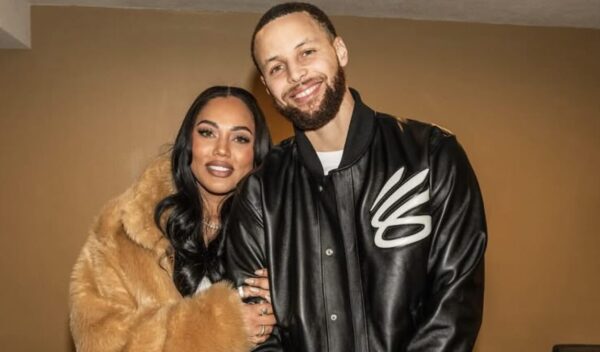
Newsletter Subscribe
Enter your email address below and subscribe to our newsletter

Steph Curry, the Golden State Warriors superstar with a reported net worth of $240 million, recently made headlines by claiming that NBA players are still underpaid. While most people would consider earning nearly $60 million per season pretty decent pocket change, Curry has a different perspective on the matter. Steph Curry Thinks NBA Players are underpaid.
Curry argues that NBA players deserve equity stakes in their teams while actively playing, which current league rules prohibit. During an interview with Complex, he explained that players create massive value for franchises but can’t participate in the ownership upside that comes with skyrocketing team valuations. It’s like being the star chef at a restaurant that becomes wildly successful, but you can only get paid your salary while the owner gets rich from selling the business.
The timing of Curry’s comments is particularly interesting, as NBA salaries have reached record highs with some players set to earn $75 million annually. His argument dives deep into how the league’s collective bargaining agreement structures player compensation and why he believes the current system leaves money on the table that rightfully belongs to the athletes driving the league’s growth.
Steph Curry argues that despite massive salaries, NBA players can’t own pieces of their teams while playing. He points to the huge gap between what teams are worth now versus player pay.

Curry thinks the real problem isn’t about salary numbers. It’s about ownership rules in the NBA.
The Golden State Warriors star makes nearly $60 million next season. But he can’t buy stock in his own team while he plays.
“We can’t participate in equity,” Curry explained in his interview. “That’s a big deal because it is a partnership with ownership.”
Current NBA rules block active players from owning team shares. Only retired players can buy in later.
The timing issue bothers Curry most. Players help make teams valuable while they’re playing. But they can’t cash in on that value growth until after they retire.
David Robinson bought Spurs shares in 2004 – but only after he stopped playing. Curry wants that option while he’s still putting fans in seats.
The collective bargaining agreement runs until 2030. Players will likely push for equity changes in the next deal.
Team values have grown much faster than player salaries. The numbers show a massive gap.
The Warriors were worth $168 million in 2000. By 2024, they hit $8.8 billion. That’s more than 50 times bigger.
Curry helped drive much of that growth. His championships and popularity boosted the Warriors’ value significantly.
| Team | 2000 Value | 2024 Value |
|---|---|---|
| Warriors | $168M | $8.8B |
| Lakers | $360M | $7.1B |
| Knicks | $395M | $7.5B |
The Lakers just sold for $10 billion. Meanwhile, top player salaries will hit about $75 million by 2030.
“Those numbers sound crazy, but what the league is doing is probably 10x that,” Curry said. He thinks players deserve more of the pie they help bake.
The NBA signed a $76 billion media deal. Players get a cut, but not ownership upside.
Many fans think NBA players already make too much money. The average NBA salary is nearly $12 million.
That’s way higher than NFL players, who average about $3 million. Even bench players like Santi Aldama earn more than star NFL tight end Travis Kelce.
The sticker shock is real for regular people. When someone making $60 million says he’s underpaid, it sounds tone-deaf.
But Curry’s argument isn’t really about his paycheck. It’s about business ownership and long-term wealth building.
Some fans see his point about equity. Others think millionaire players complaining looks bad.
The Golden State Warriors wouldn’t be worth $8.8 billion without star players. Curry helped transform the franchise from a struggling team into a global brand.
His championships brought in new fans worldwide. That popularity boost shows up in team valuations, not just his salary.
The NBA’s Collective Bargaining Agreement acts like a financial straightjacket for players, capping their earnings at 51% of basketball-related income while blocking them from owning team equity. Players also face salary deductions through escrow systems that further reduce their actual take-home pay.
The NBA’s Collective Bargaining Agreement is basically a really expensive rulebook that nobody asked for. This agreement between the league and players’ union sets the ground rules for how much money players can actually pocket.
Think of the CBA as a fancy contract that says “congratulations, you’re really good at basketball, but here’s exactly how much you’re allowed to make.” The current structure prevents players from buying into team ownership while they’re active.
The agreement also creates salary caps and luxury tax penalties. These rules stop teams from spending unlimited money on players.
Players can’t participate in equity deals under the current CBA. This means they miss out on the real money that comes from owning part of a team.
The CBA gets renegotiated every few years. Each time, it’s like watching two groups argue over who gets the bigger slice of a very expensive pie.
The NBA’s basketball-related income for 2024-25 hit $10.247 billion. That’s enough money to buy a small country, or at least rent one for a really long time.
Players get exactly 51% of this basketball-related income. The remaining 49% goes to team owners, who probably use it to buy more expensive suits.
Basketball-related income includes ticket sales, TV deals, and merchandise. It doesn’t include things like parking fees, which is probably why stadium parking costs more than some people’s rent.
The league recently signed a $76 billion media rights deal. Even with this massive windfall, players still can’t break free from the 51% ceiling.
This revenue split sounds fair on paper. But when you consider that players are the actual product people pay to watch, it starts feeling like getting paid in Monopoly money.
The NBA’s escrow system is like having your mom hold onto part of your allowance “just in case.” Except your mom is a billion-dollar sports league, and the allowance is millions of dollars.
Players don’t receive their full salaries during the season. A portion gets held in escrow to make sure the revenue split stays at exactly 51%.
If basketball-related income falls short of projections, players lose some of their escrowed money. It’s like getting a participation trophy, but in reverse.
The escrow system can withhold up to 10% of player salaries. This means a player expecting $10 million might only see $9 million in their bank account.
Other deductions include agent fees, union dues, and various taxes. By the time everything gets taken out, players probably feel like they’re working at a lemonade stand with really high overhead costs.
Steph Curry’s massive earnings and net worth tell only part of the story behind his true value to the Golden State Warriors. The team’s explosive growth from a middling franchise to one worth nearly $9 billion shows just how much one superstar can transform an entire organization.
Steph Curry currently holds the title of the NBA’s highest-paid player, earning $55.7 million during the 2024-25 season. His net worth sits at approximately $240 million, though he’ll likely join the exclusive billion-dollar club soon enough.
The Warriors clearly aren’t afraid to open their wallets for their golden boy. Curry’s current deal pays him nearly $60 million next season, making him basketball’s ultimate money magnet.
But here’s the kicker: despite these eye-popping numbers, Curry believes he’s still getting shortchanged. His career earnings are expected to surpass $1 billion with his current Warriors contract, yet he argues players deserve even more.
The math is pretty wild when you think about it. Curry makes more in one season than most people earn in several lifetimes, but in the context of what he brings to the table, maybe he has a point.
The Golden State Warriors were worth just $168 million back in 2000, ranking 22nd in the NBA. Fast forward to 2024, and they’re valued at $8.8 billion – that’s not a typo.
This incredible jump didn’t happen by accident. Curry’s arrival and subsequent championships turned the Warriors from Bay Area afterthoughts into a global basketball empire.
Warriors Valuation Growth:
The team went from being the league’s forgotten franchise to must-see TV. Curry’s three-point wizardry didn’t just change basketball – it changed the Warriors’ bank account too.
It’s almost comical how much the franchise’s value exploded once Curry started raining threes from the parking lot.
Curry’s impact goes way beyond his jump shot. He single-handedly transformed the Warriors from perennial disappointments into championship contenders and global superstars.
The numbers don’t lie: before Curry’s rise, the Warriors were lucky to fill half their arena. Now they sell out every game and have fans worldwide buying jerseys faster than Curry can sink logo shots.
His influence created a basketball revolution. Teams across the league started copying the Warriors’ style, launching more three-pointers than ever before.
Curry also turned his teammates into household names. Players like Klay Thompson and Draymond Green became stars largely because of the system built around Curry’s incredible shooting ability.
The economic ripple effect is staggering. From ticket sales to merchandise to TV ratings, Curry’s presence turns everything he touches into gold – literally.
The NBA might need to rethink how it pays players if stars like Curry keep making noise about being underpaid millionaires. Two big changes could shake things up: giving players actual ownership stakes and rewriting the collective bargaining agreement.
Curry’s biggest gripe isn’t about his paycheck size. It’s about missing out on the real money party.
NBA teams keep getting more valuable every year. Players watch from the sidelines as owners cash in big time. Equity participation would let players own small pieces of teams or the league itself.
Think of it like this: instead of just getting paid to play, players would become business partners. When team values go up, players make money too.
The current system caps how much players can earn through salaries. But ownership stakes have no ceiling. A player could make way more from owning 1% of a team than from their entire playing contract.
Other sports leagues have tried similar ideas. Some soccer players get ownership deals. Even esports players sometimes get equity in their teams.
The NBA would need to completely change how it thinks about player compensation. Owners might not love sharing their golden goose.
The collective bargaining agreement expires in a few years. That’s when things could get interesting.
Players might push hard for equity rules in the next CBA. They have more power now than ever before. The league makes billions, and players know it.
Union leaders could demand ownership opportunities as a trade-off. Maybe players accept lower salaries if they get equity instead. Or they might want both higher pay and ownership stakes.
Owners will probably fight this tooth and nail. They didn’t buy billion-dollar teams to share profits with employees. But player strikes could force their hand.
International expansion could create new revenue streams to split. The NBA wants to grow globally. Players will want their cut of that growth beyond just salary increases.
Young players especially might prefer equity over cash. They understand long-term wealth building better than previous generations.